CORPORATE ACTION
Coronavirus Currently Hindering Plastics Recycling, But A Long-Term Boost?
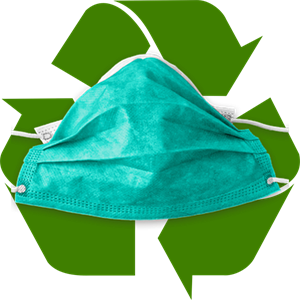 Plastics recycling has been set back by coronavirus, but we see reason for hope through more radical change longer-term.
Plastics recycling has been set back by coronavirus, but we see reason for hope through more radical change longer-term.Coronavirus arrived at a time when plastics recycling was already deeply struggling and arguably broken. China’s 2018 National Sword policy that ended its role as mass importer of the world’s plastic waste meant a glut of used plastic in the West that had insufficient recycling capacity.
Low oil prices have meant that in recent years the cost of virgin plastic is competitive and often lower than recycled plastic. The current Russia-Saudi-Arabia oil price war collapsed oil prices further and means that for the foreseeable future recycled plastic will not be cost competitive.
While the oil price may eventually increase, the emergence of carbon taxes and rise of electric vehicles will prevent a sharp increase, meaning recycled plastic could remain uneconomic for years.
In the UK, it is only the value of a tradeable credit for plastic that has been recycled (the Packing Recycling Note) that keeps the recycling industry afloat. It’s currently about £250/tonne and Simon Ellin, CEO of The Recycling Association, says that if it wasn’t for the PRN, “…UK plastics would be in negative pricing”.
A compounding factor for recyclers is ongoing efforts by plastic users to reduce plastic usage with thinner packaging, so called ‘lightweighting’. This lowers their plastic footprint but makes recycling less economic since processors only get ever thinner plastics to process.
It was in this context that coronavirus hit. Plastics, along with other environmental concerns, have been deprioritized as people and organizations focus on combating the virus.
Recycling has been suspended in many jurisdictions worldwide. For example, TerraCycle says that all its 100,000 collection points at retailers around the world are currently closed.
Moreover, there’s been a sharp uptick in plastics waste that has been used where coronavirus is present. Biohazardous waste from Covid-19 medical facilities or coronavirus test sites require special treatment and is taking time and resource from traditional recycling processing.
The net result of all this is that much of the waste stream that would ordinarily go for recycling processing is now largely going to landfills and incinerators, which means processors are not getting sufficient plastic to meet demand for recycled plastic.
Reduced supply is expected to endure for quarters and perhaps years and will limit the ability of manufacturers to meet their recycled content obligations. In the UK, recycled content was expected rise to 30% in 2025 but Simon Ellin believes the downturn in supply of recycled plastic will make it difficult for manufacturers to meet the target. It could also imperil the less stringent but global New Plastic Economy targets of 25% recycled content by 2025.
Taken together, these factors mean the future for plastics recycling looks bleak. It did not have a viable business model before coronavirus, and now it looks even worse.
But there is another way to cast this.
First, some believe environmental concerns will come to the fore, including a push toward circularity. Lockdowns have caused surprisingly quick and profound gains in environmental quality (air purity, reduced noise pollution etc.). Commentators believe people will be more motivated to push for change now they know how easy positive results can be attained.
New codes of behavior, such as distancing requirements on public transport, is encouraging investment in bike paths and other infrastructure that would have seemed infeasible just months ago.
As part of this wholesale reassessment and realignment of public investment, ongoing failure of plastic recycling will become very clear. Rather than invest in additional recycling capacity, a better solution would be to push for plastic taxes (governments will be needing the cash) and, instead, end mass recycling as a solution and aim for the truly circular solutions of biodegradability and/or reuse and refill.[Image Credit: © CC0]
CORPORATE ACTION: Danone
Evian Packaging, Production, Distribution Certified As Carbon Neutral
 After announcing in December that four of its water brands had committed to achieving carbon neutrality in the coming years, the company issued a statement this month that Evian’s bottling operations have been verified as carbon neutral under the Carbon Trust’s internationally-recognized PAS 2060 standard. Evian said the certification was granted after changes in packaging, production, and distribution. It reduced its carbon footprint by lightweighting plastic bottles and increasing recycled PET (rPET) in packaging. The brand reduced the carbon footprint of production operations by using renewable energy at its carbon-neutral production site in France. Evian plans to make all of plastic bottles from 100 percent recycled plastic by 2025. Lastly, approximately 50 percent of Evian’s volumes are now shipped directly by train from the plant, resulting in a carbon footprint seven times lower than delivery by trucks.[Image Credit: © Danone S.A.]
After announcing in December that four of its water brands had committed to achieving carbon neutrality in the coming years, the company issued a statement this month that Evian’s bottling operations have been verified as carbon neutral under the Carbon Trust’s internationally-recognized PAS 2060 standard. Evian said the certification was granted after changes in packaging, production, and distribution. It reduced its carbon footprint by lightweighting plastic bottles and increasing recycled PET (rPET) in packaging. The brand reduced the carbon footprint of production operations by using renewable energy at its carbon-neutral production site in France. Evian plans to make all of plastic bottles from 100 percent recycled plastic by 2025. Lastly, approximately 50 percent of Evian’s volumes are now shipped directly by train from the plant, resulting in a carbon footprint seven times lower than delivery by trucks.[Image Credit: © Danone S.A.]
CORPORATE ACTION: Procter & Gamble
P&G To Trial New All-Paper Deodorant Tubes At Select Walmart Stores
 Walmart will host a pilot for all-paper tube packaging for some of the Old Spice and Secret aluminum-free deodorants from P&G. The new pack contains 90% recycled paper with a “push up” design. If the test succeeds, P&G will roll the rubes out to other products. [Image Credit: © Proctor & Gamble]
Walmart will host a pilot for all-paper tube packaging for some of the Old Spice and Secret aluminum-free deodorants from P&G. The new pack contains 90% recycled paper with a “push up” design. If the test succeeds, P&G will roll the rubes out to other products. [Image Credit: © Proctor & Gamble]
CORPORATE ACTION: Other
Campbell Soup Company's Four New Sustainable Packaging Goals
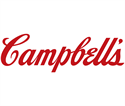 Campbell Soup Company has announced four new goals for packaging sustainability, to reduce packaging waste by investing in recyclability, using recycled content, and through consumer education and infrastructure. The four goals are:
Campbell Soup Company has announced four new goals for packaging sustainability, to reduce packaging waste by investing in recyclability, using recycled content, and through consumer education and infrastructure. The four goals are: - 100% recyclable or industrially-compostable packaging designs and materials by 2030
- Expand use of post-consumer recycled content, and to use 25% PCR in PET bottles by 2030
- Drive higher recycling rates by on-pack labeling, such as the How2Recycle label, on all packaging by 2022
- Improve access to recycling and help develop collection and recycling infrastructure through partnerships
CAMPAIGNS, COMMITMENTS & NGOs
Ellen MacArthur Foundations Joins GREENRECOVERY For Post-Pandemic Europe
 The Ellen MacArthur Foundation announced that it is joining the GREENRECOVERY collaboration to support the REBOOT & REBOOST of European economies after the pandemic, recognizing the opportunity we have to “rethink our society and develop a new model of prosperity”.
The Ellen MacArthur Foundation announced that it is joining the GREENRECOVERY collaboration to support the REBOOT & REBOOST of European economies after the pandemic, recognizing the opportunity we have to “rethink our society and develop a new model of prosperity”. The Foundation says that investment in a new resilient, protective and inclusive economic model for Europe is consistent with circular economy aims, and sustainability principles align with the need to deliver jobs, accelerate growth and improve people’s way of life worldwide. This can be achieved without a ground-up response, by building on the work done in sustainability over the last decade, supported by the political will demonstrated by projects like the European Green Deal. GREENRECOVERY aims to develop a global alliance across a wide range of areas, including politicians, business and financial leaders, NGOs, trade unions, thought leaders and stakeholders. It wants to establish Green Recovery Investment Packages to bring forward a climate-neutral future. [Image Credit: © The Ellen MacArthur Foundation]
Food Companies Deny Exploiting COVID-19 To Delay Plastic Pledges
Defra (Department for Environment, Food & Rural Affairs) said on April 16, "Given the huge challenges posed to businesses by coronavirus, we have confirmed we will delay the introduction of our ban on plastic straws, stirrers and cotton buds until October 2020".
Companies in the UK food sector have rejected claims that they are using COVID-19 to urge delays in government pledges on plastic reduction. Over 20 campaigners under the banner of the Plastic Health Coalition, wrote an open letter following Defra’s decision. The government in Scotland has delayed for a year deposit return schemes. Food companies, however, state that the delays reflect acknowledgment that previous timeframes are no longer feasible. [Image Credit: © CC0]
Consumer Brands Association Proposes Blueprint For Upgraded Recycling System
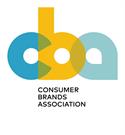 A paper from the Consumer Brands Association claims that the CPG industry is working hard to make packaging more sustainable but argues that recycling infrastructure is at “breaking point” and unable to meet demand. The organization puts forward an approach for the US based on three guiding principles:
A paper from the Consumer Brands Association claims that the CPG industry is working hard to make packaging more sustainable but argues that recycling infrastructure is at “breaking point” and unable to meet demand. The organization puts forward an approach for the US based on three guiding principles: - The need for transformative innovations to drive system improvement
- The recycling system is a responsibility of all stakeholders - packaging suppliers, CPG companies, consumers, the waste and recycling industry, governments and NGOs
- Real solutions have to be “scalable, market-based, measurable and impactful”
- A standardized foundation rather than the existing “patchwork” of 10,000 recycling programs in the US, which engenders consumer confusion and low participation. There is an opportunity for a simple and transparent market-based system, based on uniform national or regional standards. The Consumer Brands Association suggests national minimum standards for Materials Recovery Facilities so they all accept the same packaging for recycling
- The finance for a lasting and standardized recycling system, together with consumer education. The revenue from any new taxes or fees applied to packaging and its disposal should be ring-fenced for use to support a new system
- Strengthened end-markets to meet demand. At the moment, there is only enough recycled material to meet 6% of demand. The authors urge new policies to help build and maintain strong end markets, driven by federal and state governments that expand beyond state borders. Such end-market development should be supported by higher minimum post-consumer recycled content levels; robust audits of existing infrastructure and reviews of requirements for improvement needs; chemical recycling to improve the quality and quantity of PCR materials; and bans on recycling or disposal of recyclable packaging.
PACKAGING REDESIGNS
Open Water Achieves “Climate Neutral” Certification, Thanks Partly To Aluminum Packaging
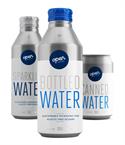 Independent nonprofit Climate Neutral, whose mission is to speed up “the transition to a low-carbon world,” has certified Chicago-based bottled water company Open Water as Climate Neutral, meaning the company has achieved net-zero carbon emissions. Open Water, formerly Green Sheep Water, packages its electrolyte-enriched beverage in “infinitely recyclable” aluminum bottles and cans and by using aluminum caps instead of plastic ones. To achieve the certification, the company calculated its 2019 carbon footprint from manufacturing and production through finished product delivery; committed to a plan to cut future greenhouse gas emissions; and invested in two forest conservation projects and in another that collects and destroys methane gas emissions.[Image Credit: © Green Sheep, Inc. dba Open Water | formerly Green Sheep Water]
Independent nonprofit Climate Neutral, whose mission is to speed up “the transition to a low-carbon world,” has certified Chicago-based bottled water company Open Water as Climate Neutral, meaning the company has achieved net-zero carbon emissions. Open Water, formerly Green Sheep Water, packages its electrolyte-enriched beverage in “infinitely recyclable” aluminum bottles and cans and by using aluminum caps instead of plastic ones. To achieve the certification, the company calculated its 2019 carbon footprint from manufacturing and production through finished product delivery; committed to a plan to cut future greenhouse gas emissions; and invested in two forest conservation projects and in another that collects and destroys methane gas emissions.[Image Credit: © Green Sheep, Inc. dba Open Water | formerly Green Sheep Water]
New Study Finds Frugal Cup Better For The Environment
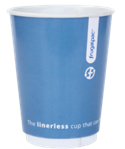 A new study found that that the carbon footprint of Frugal Cup, a British-made recyclable coffee cup that uses 96% recycled paper, is up to 60% lower than conventional and compostable cups and uses 74% water. The study was conducted by Intertek independent and estimated that if the UK alone switched to Frugal Cup it could save a billion or more liters of water each year and a million trees. It also found that conventional cups sent to landfill or incineration had the highest carbon footprint, and compostable cups had the highest carbon footprint if recycled as well as the highest water footprint. The Frugal Cup performed best on both carbon and water footprints. Frugalpac is planning to launch additional product lines in the coming months, including a bottle for wine and spirits, and a pot for noodles, porridge, ice cream and yoghurt.[Image Credit: © Frugal Pac]
A new study found that that the carbon footprint of Frugal Cup, a British-made recyclable coffee cup that uses 96% recycled paper, is up to 60% lower than conventional and compostable cups and uses 74% water. The study was conducted by Intertek independent and estimated that if the UK alone switched to Frugal Cup it could save a billion or more liters of water each year and a million trees. It also found that conventional cups sent to landfill or incineration had the highest carbon footprint, and compostable cups had the highest carbon footprint if recycled as well as the highest water footprint. The Frugal Cup performed best on both carbon and water footprints. Frugalpac is planning to launch additional product lines in the coming months, including a bottle for wine and spirits, and a pot for noodles, porridge, ice cream and yoghurt.[Image Credit: © Frugal Pac]
Some YSL Pure Shots Products To Be Reloadable
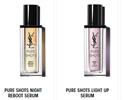 Pure Shots, the premium skincare range from Yves Saint Laurent Beauté, is using reloadable packaging for its serum and cream formats. Packaging for the lotion is recyclable. Serums are sold in a plastic shell outer shell that contains a glass bottle that can be replaced, along with the pump. The cream comes in a glass jar and the refill is plastic.
Pure Shots, the premium skincare range from Yves Saint Laurent Beauté, is using reloadable packaging for its serum and cream formats. Packaging for the lotion is recyclable. Serums are sold in a plastic shell outer shell that contains a glass bottle that can be replaced, along with the pump. The cream comes in a glass jar and the refill is plastic.[Image Credit: © Yves Saint Laurent ]
POLICY, REGULATION & LEGAL
Update: Earth Island Institute Big Plastics Lawsuit, Battle Over Court Location
Earth Island Institute filed its lawsuit in California, citing violations of the California Consumers Legal Remedies Act, including public nuisance, defective product liability, negligence and failure to warn of the harms caused by the companies' plastic packaging. Defendants cited in the case, which include Crystal Geyser, Coca-Cola, Mars, Danone, Mondelēz, Colgate-Palmolive and Procter & Gamble have sought to remove the lawsuit to federal court since, the defendants allege, plastic waste is a global issue that involves matters of federal law and is not a local matter.
In email communication, Earth Island Institute points out that it filed a motion to remand the case to the state court since it does not seek any relief under federal law and is addressing conditions located in the state of California.
Analysts believe that moving the case to federal courts would allow the defendants to seek cover from federal common law for water-based public nuisance.
A schedule laid out by the court means a decision on location will not be made before the summer.[Image Credit: © Earth Island Institute]
New UK Guidelines To Help Companies Wanting To Use Recycled Content In Packaging
INNOVATION & TECHNOLOGY
Eastman Has Two Possible Game-Changing Chemical Recycling Projects For Hard-To-Recycle Plastic
Eastman was spun off from the old Kodak company and in the last few years has been focused on specialty materials, and the circular economy, as a post-recession strategy. Eastman says that mechanical recycling processes are reasonably efficient for PET and HDPE plastics, but there is a massive opportunity in other types of plastic used in a variety of applications.
It has recently worked with Circular Polymers, which collects and densifies PET from waste carpeting and converts it into pellets, shipped by rail to Eastman, which uses CRT to turn them into new materials for textiles and packaging, as well as frames for eyeglasses.
Eastman says it could each year use millions of pounds of carpeting through this type of partnership, but that’s still only a small fraction of the 3 billion pounds of carpet going to landfill in the US alone.
Eastman aims to replace virgin plastic with a "carbon renewal" substitute wherever it’s viable economically. CRT and PRT processes have been used in several Eastman polymer brands for a range of applications, including Naia, made from certified sustainably managed pine and eucalyptus plantations. It’s used in the fashion industry and made in a closed-loop process – the chemical inputs are repeatedly recycled. The yarn can be knitted or woven, and it compares favourably in environmental impact to silk, cotton and polyester. Eastman is working on eliminating fossil fuels from the process by using gases that come from breaking down the waste plastics. “Naia Renew” will launch later this year.
Other Eastman brands using the processes include Trēva (cellulose-based); CDA (bio-derived); Cristal (for high-end cosmetics packaging); and Tritan (used in Camelbak and Nalgene water bottles, and Rubbermaid food containers).
Eastman is also working with partners to identify new landfill mining opportunities to provide the feedstocks to work with. [Image Credit: © Eastman]
New Paper-Like Packaging From Sugarcane Waste Has Plastic Attributes
 Varden, an Australian startup based in Melbourne, is converting sugarcane waste into a paper packaging substitute with plastic attributes. It has raised $2.2 million in funding from Horizons Ventures. Working with Fisher and Paykel, a manufacturer in New Zealand, Varden’s two co-founders developed a coffee pod prototype from sugarcane bagasse, a byproduct in sugar processing. Unlike most bioplastics, it doesn’t rely on bacteria. The material is molded using a thermoform, and looks like (and can be torn like) paper. The first use case Varden is targeting is coffee capsules – a huge but challenging market. The new funding means the company can start to produce them at scale for pilot applications.
Varden, an Australian startup based in Melbourne, is converting sugarcane waste into a paper packaging substitute with plastic attributes. It has raised $2.2 million in funding from Horizons Ventures. Working with Fisher and Paykel, a manufacturer in New Zealand, Varden’s two co-founders developed a coffee pod prototype from sugarcane bagasse, a byproduct in sugar processing. Unlike most bioplastics, it doesn’t rely on bacteria. The material is molded using a thermoform, and looks like (and can be torn like) paper. The first use case Varden is targeting is coffee capsules – a huge but challenging market. The new funding means the company can start to produce them at scale for pilot applications.[Image Credit: © Varden]
EMERGING IDEAS, THEMES & TRENDS
C-Suite Should See The Plastics Reduction Challenge As An Opportunity
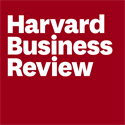 Single-use packaging means we dispose each year of $100 billion of economic value after just one use. Companies’ C-suite should see plastic reduction an opportunity to:
Single-use packaging means we dispose each year of $100 billion of economic value after just one use. Companies’ C-suite should see plastic reduction an opportunity to: - Drive innovation, to deliver the benefits of plastic without plastic waste. Retailer IKEA announced that it will replace plastic foam packaging with a reusable mushroom-based material, grown in a week and which will decompose in a month.
- Reduce costs, by looking at new ways to deliver products. Concentrates and powders, for example, avoid the need to transport the vast water content in some products.
- Access cheaper capital, such as through green bonds. In 2019, PepsiCo issued a billion-dollar green bond with some of proceeds to be focused on reducing its use of virgin plastic.
- Mitigate risk by heading off some of the attention from regulators, consumers, and activists, and reducing exposure to the risk of lawsuits, fines and other penalties.
- Attract and retain new customers by addressing how consumers are expressing the need for brands to be better aligned with their values. Millennials are typically seen as being in the vanguard on this, but the Morgan Stanley Institute for Sustainable Investing found the gap to other generations has been closing.
RESEARCH
New Paper Calls For More Research Into Reusable Packaging In B2B And B2C
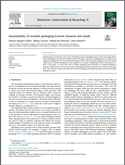 This paper reviews the literature on the environmental impact of reusable packaging as it gains increasing attention in the effort to reduce or eliminate single-use packaging. It concludes that although reusable packaging is most common in B2B settings, it is also used widely in some B2C applications, such as beverages. It found that knowledge in the context of B2B was richer than for B2C, but that few studies “have proactively investigated the potentials” of reusable packaging, and that research is needed to look at different market segments to discover opportunities, and in collaboration with stakeholders such as manufacturers, retailers and the logistics industry.[Image Credit: © Science Direct]
This paper reviews the literature on the environmental impact of reusable packaging as it gains increasing attention in the effort to reduce or eliminate single-use packaging. It concludes that although reusable packaging is most common in B2B settings, it is also used widely in some B2C applications, such as beverages. It found that knowledge in the context of B2B was richer than for B2C, but that few studies “have proactively investigated the potentials” of reusable packaging, and that research is needed to look at different market segments to discover opportunities, and in collaboration with stakeholders such as manufacturers, retailers and the logistics industry.[Image Credit: © Science Direct]
OTHER NEWS
Sustainable Packaging Can’t Work Without The Appropriate Infrastructure And Consumer Participation
 David Clark, Amcor’s Vice President for Sustainability, argues that we must look at recycling infrastructure and recyclable packaging together, and that COVID-19 has brought to the fore the role that packaging plays in food safety, food quality, shelf life and hygiene. He also highlighted that recent changes in consumer behavior in response to the pandemic could result in more food being wasted. Clark outlined some of the work Amcor is doing to develop sustainable packaging, including the 100% post-consumer recycled PET multivitamin containers it launched in February, as well as a 100% recycled and recyclable postable wine bottle for the US market.
David Clark, Amcor’s Vice President for Sustainability, argues that we must look at recycling infrastructure and recyclable packaging together, and that COVID-19 has brought to the fore the role that packaging plays in food safety, food quality, shelf life and hygiene. He also highlighted that recent changes in consumer behavior in response to the pandemic could result in more food being wasted. Clark outlined some of the work Amcor is doing to develop sustainable packaging, including the 100% post-consumer recycled PET multivitamin containers it launched in February, as well as a 100% recycled and recyclable postable wine bottle for the US market.As well as packaging that’s reusable and recyclable, it’s also working on bio-based materials that are sourced responsibly, and making packaging lighter to improve its carbon footprint. He pointed out the truism that for sustainable packaging to be effective in delivering a solution, we also need the infrastructure and consumer participation. He said that evidence from places including Japan, Germany, and British Columbia demonstrates that packaging waste leakage can be reduced by aligning packaging innovations with consumer incentives and the appropriate infrastructure. [Image Credit: © Amcor]
Copyright 2026 Business360, Inc.

